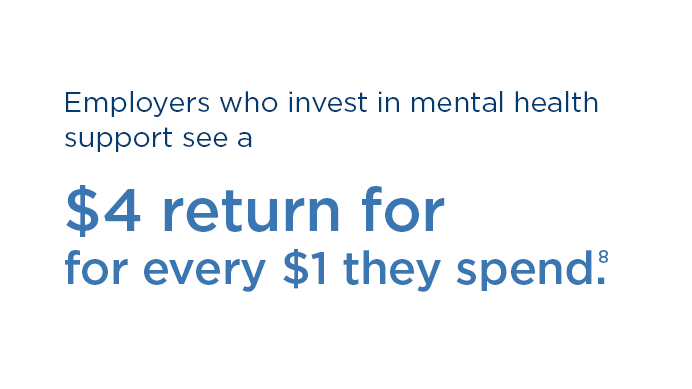Given the prevalence of substance misuse and the toll it takes on employees and businesses alike, there’s an urgent need for employers to implement effective interventions and recovery-ready workplace policies. Building awareness, destigmatizing substance use, and encouraging treatment in the workplace can strengthen the workforce, increase worker well-being, decrease turnover, improve productivity, and reduce health care costs.
Employers who invest in employee recovery avoid $8,175 in turnover and health care costs per employee per year. And employees in recovery tend to stay in their jobs longer, are less likely to be hospitalized, and have fewer primary care visits.[13]
At Kaiser Permanente, we address substance use by promoting a culture of harm reduction, increasing access to lifesaving medications, and reducing stigma through ongoing provider training. We also implement initiatives to help prevent overdoses. Our Zero Overdose Dashboard and Best Practice Alert system track high-risk patients and prescribe naloxone to counteract opiate overdoses, while our clinician education program provides timely interventions. This comprehensive approach not only reduces overdose risks but also supports individuals in their journey to recovery, enhancing workforce well-being and engagement.









